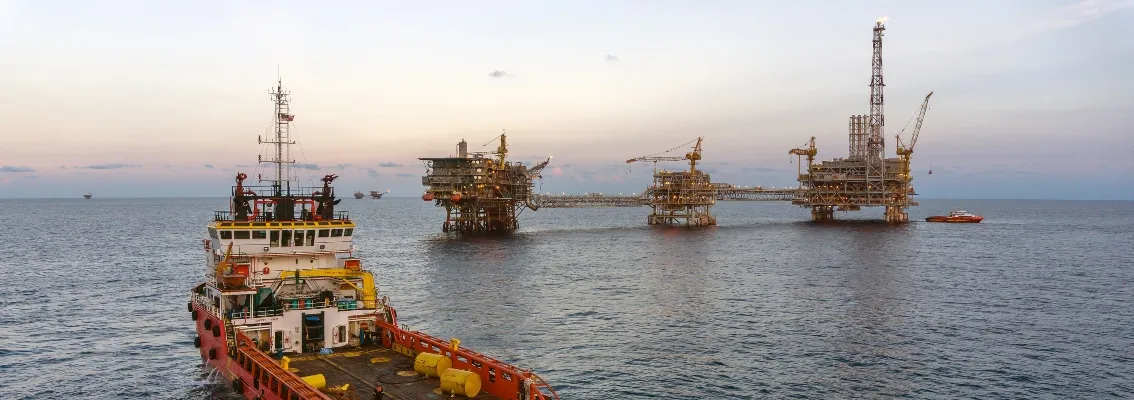London, UK - 23 June 2020: DNV GL has proposed a new approach to verification of oil and gas projects and operations on the UK Continental Shelf (UKCS) following a review of current practices. After consultation with several oil and gas operators, DNV GL’s new way of working revealed that the role of the verification body must evolve to better support British oil and gas operations to manage the right risks at the right time and ensure critical equipment will operate when it is needed most.
The technical advisor to the oil and gas industry has piloted a new verification approach called ‘NextGen Verification’. It uses digital technologies, such as data mining techniques and advanced software, to modernize and create greater efficiency in the verification system on the UKCS.
Since UK safety case legislation was brought into force in 1996 following the Piper Alpha disaster, the industry’s collective understanding of what accident hazards are and how they can be managed have undergone radical transformation. However, according to DNV GL, new technologies, not available when the verification system was introduced in the UK 30 years ago, enables an update to the role of the independent verifier.
“The pilot first examined the relevance of the verifier’s technical scope of work and the value it brings to ensure safe industry operations offshore the UK. Participants agreed that the current verification process for safety and environmental critical elements (SECEs) on an asset has taken the form of a vehicle MOT or check-list approach, meaning the plant-only scope is valid only on the day of assessment,” said Jack Downie, Head of Development and Innovation, UK Verification Services at DNV GL – Oil & Gas.
“There is general consensus that the current verification system has not kept pace with industry’s new reality of aging assets in the UK, environmental obligations, advanced technologies, and cost constraints. To satisfy the original intent of the regulations, issued after an inquiry into the Piper Alpha disaster by Lord Cullen, we must enhance the ability of the verifier, and therefore the duty holder, to visualise signals of deterioration in the performance of hazard management. ‘NextGen Verification’ hinges on the successful implementation of digital techniques to build a better risk picture across the entire period,” Downie added.
DNV GL is calling on the UK oil and gas industry to elevate verification of operational integrity (people and process) to the same importance as plant or asset integrity. To achieve this, the verifier’s activities must be more clearly matched to the major accident hazards (MAH) rather than individual Performance Standard criteria. It also wants verifiers to seek out weak signals of threats to the SECEs ability to deliver its MAH goals and to apply new digital techniques which can be more or equally effective in assessing the performance of any SECE.
DNV GL observes that digital and remote 4G-enabled platforms, and replica control rooms, have already become readily used by operators with suitable facilities to witness testing activities where appropriate. When we enhance this with data analytic techniques and a shift to focused technical auditing instead of simply witnessing more tests when offshore, verification bodies will be more cost-effective and enable closer cooperation and better informed decision-making between the duty holder and the verifier.
Over the last year, DNV GL has built tools and algorithms to assist in normalising and assessing datasets. Several proof of concept verification reports have been produced to deep-dive into the results of all assurance activities over the review period.
“This approach has allowed us to define a very specific offshore scope of work based on these findings and investigate any concerns or challenges. Compliance with a NextGen Verification scheme can then be delivered in a value-adding yet flexible way, adapting to the actual risk assessed using new and different techniques. We don’t intend to stop going offshore completely, but we have shown that we can reduce our attendance and use our time more effectively when we are there,” explained Downie.
“Offshore verification schemes need to move forward and improve their contribution to safety and efficiency. The impact of COVID-19 and the oil price turmoil we’re currently experiencing has accelerated its urgency,” said Hari Vamadevan, Regional Manager, UK and West Africa, DNV GL - Oil & Gas.
“By examining the current verification scheme, we have developed a more focused approach towards assessing the management of risks. This will improve the benefits contributed by independent verifiers to offshore safety without increasing cost to the duty holder. It will also meet the intent of current UK legislation more effectively,” Vamadevan concluded.
